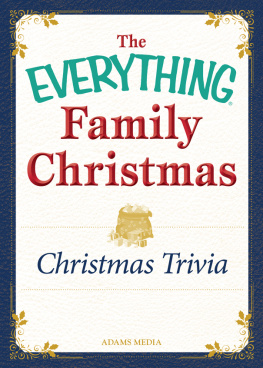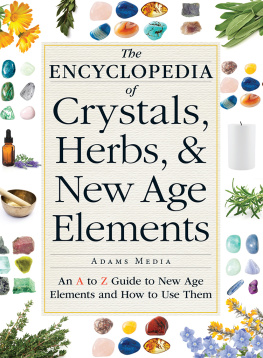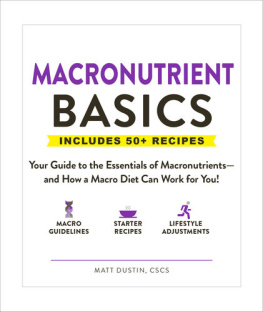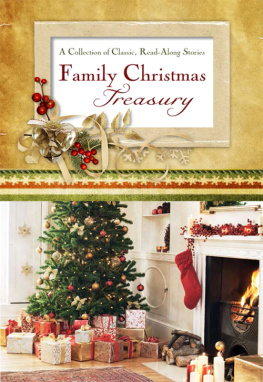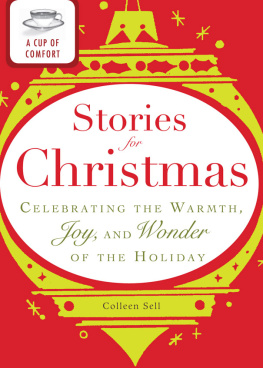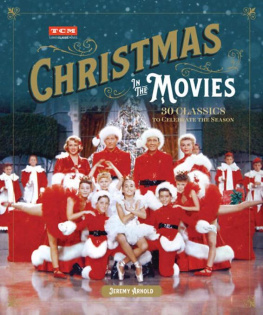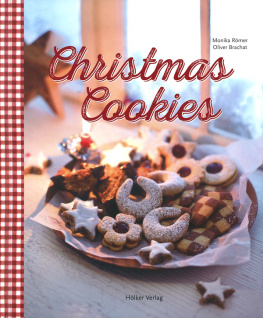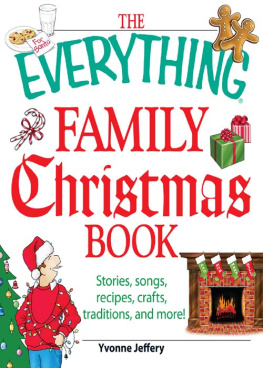The Everything Family Christmas Series
Christmas Trivia
Celebrating the magic of the holidays
Adams Media, a division of F+W Media, Inc.
Avon, Massachusetts
Contents
Introduction
When you distill the true meaning of Christmas whether you celebrate on December 6, December 25, January 6, or a little bit on each of those days it all comes down to a single word: wonder.
It was wonder that led the Magi to follow the Star to Bethlehem. It was wonder that filled the stable in Bethlehem the night that Jesus was born. Its wonder that you feel in church and carol services over Christmas, imagining the more than 2,000 years of tradition and history that have made Christmas what it is today. And its wonder that fills the eyes of a five year old who starts down the stairs on Christmas morning to see the tree aglow and then shares the long tradition of exchanging gifts.
Christmas begins in the mists of long-distant history and extends along the future of the human family. Its informed by countless Christmases past and the knowledge that, as long as there are children and a sense of tradition, there are likely to be Christmases in the future. But the true event, the true day of days, is neither an account of old customs nor a prediction of the ways in which this holiday will continue to change and to grow. The true experience of Christmas is wonder.
After all, the wonder of Christmas is tied inextricably to memory. For many, Christmases past are the standards by which they measure Christmases present and future. Like the Charles Dickens creation, Ebenezer Scrooge, in A Christmas Carol, you can use your memories as a springboard to make each holiday better and more meaningful than the last.
Luckily, Christmas isnt about perfection. Its not about having the best-decorated house on the block, and it doesnt matter that the turkey took two extra hours to cook and the peas were left behind in the microwave (although hopefully not all on the same day). What matters is the creation of new memories, centered on a sense of family and being loved, whether you come with a ready-made family or one that you create yourself. Memory is, ultimately, the basis of tradition and what is Christmas if not one of the fundamental traditions of our time? Warm and wonderful memories are certainly what this book wishes for you, just as it hopes to provide inspiration for the Christmases that are in your future.
Once a year, on December 25, Christmas reintroduces you to wonder on a scale that you should never forget. This book is intended as a celebration of that wonder. May you read it as part of the most precious gift that the holiday brings: the ability to see things, for a time, through the eyes you once had on Christmas morning.
For more Christmas stories, songs, recipes, traditions, and more, check out The Everything Family Christmas Book, available in print (978-1-59869-561-8) and eBook (978-1-60550-783-5) formats.
The History of Christmas
The way in which people celebrate Christmas is a relatively recent development in the history of the holiday, which of course originates with the birth of Jesus, the Christ child, some 2,000 years ago. The festivities of December 25 have been shaped by many people and many cultures from the early Romans to Englands Queen Victoria and they continue to change even today. Whether you celebrate the day as part of Christianity or simply as a time of family togetherness, the ori-gins and evolution of Christmas span the globe.
The First Christmas
You might say that Christmas has been celebrated since the very night of Jesus birth, when, the Bible says, the angels announced his arrival on the plains of Bethlehem (in what is now Israel) in an event that was later celebrated in a special Christes Masse, or Christs Mass. The actual birth date is something that scholars still debate; however, a combination of Bible stories, historical records, and even astronomical events generally set the year between about 6 B.C. and A.D. 6
Most of the elements of our traditional Christmas story have their origin in the Bible, in the Gospels of St. Luke and St. Matthew. While the two gospels offer some historical contradictions, theres no doubt that together, they have created a picture of the birth of Jesus that is loved around the world.
From The Gospel According to St. Luke
Lukes gospel offers us not only a time and place for the birth of Jesus, but a real human and religious drama. Focusing on the trials of Joseph and Mary, Luke tells us a story of weary travelers forced to spend the night in a stable because there was no room for them at the inn. With its focus on the humble manger birth, the gathering of shepherds and angels, and the enduring message of peace on earth, this passage has given us some of Christianitys best loved Christmas songs and traditions.
And it came to pass in those days, that there went out a decree from Caesar Augustus, that all the world should be taxed. (And this taxing was first made when Cyrenius was governor of Syria.)
And all went to be taxed, every one into his own city. And Joseph also went up from Galilee, out of the city of Nazareth, into Judea, unto the city of David, which is called Bethlehem; (because he was of the house and lineage of David) to be taxed with Mary his espoused wife, being great with child.
And so it was, that, while they were there, the days were accomplished that she should be delivered. And she brought forth her first-born son, and wrapped him in swaddling clothes, and laid him in a manger; because there was no room for them in the inn.
And there were in the same country shepherds abiding in the field, keeping watch over their flock at night. And, lo, the angel of the Lord came upon them, and the glory of the Lord shone round about them; and they were sore afraid.
And the angel said unto them, Fear not: for, behold, I bring you good tidings of great joy, which shall be to all people. For unto you is born this day in the city of David a Savior, which is Christ the Lord. And this shall be a sign unto you; Ye shall find the babe wrapped in swaddling clothes, lying in a manger.
And suddenly there was with the angel a multitude of the heavenly host praising God, and saying, Glory to God in the highest, and on earth peace, good will toward men.
And it came to pass, as the angels were gone away from them into heaven, the shepherds said one to another, Let us now go even unto Bethlehem, and see this thing which is come to pass, which the Lord hath made known unto us.
And they came with haste, and found Mary, and Joseph, and the babe lying in a manger. And when they had seen it they made known abroad the saying which was told them concerning this child. And all they that heard it wondered at those things which were told them by the shepherds.
But Mary kept all these things, and pondered them in her heart. And the shepherds returned, glorifying and praising God for all the things that they had heard and seen, as it was told unto them.
From The Gospel According to St. Matthew
The Gospel accounts of Christs birth often surprise readers with the information that they dont contain, rather than what they do include. The Gospel of Matthew, for instance, is the undeniable source for the Three Kings of Orient long celebrated in song and yet it makes no mention of any king other than Herod, and it does not specify any particular number of men following the star in the east. The reverence and devotion of these figures, however, certainly leaves an indelible impression on hearts and minds.

